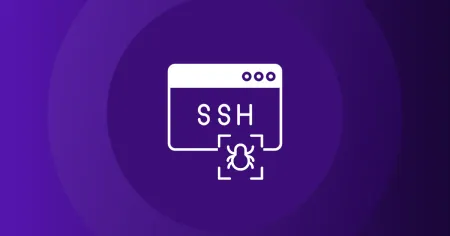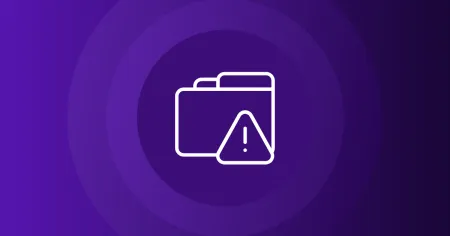Blog
Sep 20, 2024
Mental Toughness in Cybersecurity: Preparing Teams for High-Pressure Situations
Mental toughness helps cybersecurity teams improve decision-making, collaboration, and resilience, enabling them to perform under constant pressure.
7 min read

Working in cybersecurity is increasingly a high-stress profession, with constant pressure to respond to emerging challenges while keeping organizations secure. For many in the field, this stress is overwhelming—66% of cybersecurity professionals report feeling stressed at work.
Faced with this unrelenting pressure, mental toughness has become a critical asset for professionals in the field. The ability to stay calm under pressure, push through adversity, and remain adaptable is essential to performing well in high-stakes situations. Cybersecurity incidents require swift, clear-headed decision-making, and mental resilience plays a key role in ensuring teams can continue to deliver, even in the face of mounting stress.
Cybersecurity professionals operate in high-pressure environments where the stakes are incredibly high, and the demands are unrelenting. Responding to incidents, thwarting attacks, and managing evolving threats are all part of the day-to-day reality. The pressure is exacerbated by the fact that many security teams are frequently assigned to handle multiple incidents at the same time. In fact, 68% of respondents to a 2022 IBM survey reported that they were often responsible for more than one incident at a time. This multitasking, coupled with the need for rapid decision-making, creates an environment where stress levels run high.
The introduction of generative AI has only added to the pressure. With the technology rapidly advancing, many security professionals feel the burden of having to outpace AI-driven threats. 51% of security professionals have indicated they may leave their jobs within the next few years, citing the increased stress from the rise of AI as a primary reason.
Beyond the technical challenges, there is a significant mental and emotional toll that comes with constantly trying to stay ahead of cyber adversaries. Every day is a battle to anticipate, defend, and respond to a growing number of sophisticated attacks, all while knowing that a single mistake could have dire consequences. It’s no surprise that this environment leads to burnout. According to a Cyberark survey, 59% of cybersecurity professionals admitted to feeling burnt out. This chronic state of stress can lead to fatigue, reduced job performance, and, eventually, turnover.
The nature of cybersecurity makes it a profession where the pressure is constant and unavoidable, and those working in the field need to be prepared to handle it effectively. Without the right mindset and support systems in place, the emotional demands can quickly overwhelm even the most experienced professionals.
In high-pressure cybersecurity environments, mental toughness can be the difference between success and failure. A resilient mindset helps professionals remain calm, think clearly, and make sound decisions when the stakes are highest. When a team is mentally tough, they are better equipped to handle the stress of simultaneous incidents, adapt to evolving threats, and collaborate effectively under pressure.
One of the key advantages of mental toughness is its impact on decision-making during crises. When stress levels peak, many people can experience mental blocks, panic, or rush into decisions without fully considering the consequences. However, a resilient team that has trained to stay composed under pressure can maintain focus, weigh options carefully, and make informed decisions even when time is limited. This clear-headed approach is vital when handling critical incidents, such as a ransomware attack or a zero-day vulnerability exploit, where every second counts.
Mental toughness also fosters better collaboration. In stressful situations, people may struggle to communicate effectively, which can lead to misunderstandings and errors. A resilient team is more likely to stay aligned, communicate openly, and support one another during high-pressure moments. For example, in the aftermath of a major breach, teams with strong mental toughness can work together efficiently, leveraging each member’s strengths, while maintaining a calm, cooperative attitude. This ability to stay united is critical in ensuring a rapid and coordinated response to cyber threats.
The ability to perform well under stress is what sets mentally tough teams apart. Cybersecurity professionals regularly face situations where the pressure is intense and failure is not an option. Consider a scenario where an organization is undergoing a distributed denial-of-service (DDoS) attack. A resilient team will approach the issue systematically, following protocols without succumbing to the panic of a potential network collapse. This mental strength allows them to execute tasks faster, stay agile in their response, and ultimately protect critical assets more effectively.
Building mental toughness within cybersecurity teams requires a deliberate approach that goes beyond traditional technical training. It involves developing resilience, adaptability, and the ability to remain composed under stress. Here are key strategies that can help cultivate mental toughness among cybersecurity professionals:
One of the most effective ways to build mental toughness is through training that simulates real-world, high-pressure scenarios. Cyber ranges and threat simulations provide professionals with hands-on experience, forcing them to make decisions in fast-paced, stressful environments. By repeatedly confronting challenging situations in a controlled environment, teams can develop the mental agility and composure needed to respond confidently during actual incidents.
For example, exercises such as red-teaming or participating in simulated cyberattacks allow professionals to practice managing crises in real time. These experiences foster a sense of familiarity with high-pressure environments, helping individuals to stay calm and focused when similar situations arise in their daily roles.
While mental toughness is about pushing through adversity, it also requires effective stress management to avoid burnout. Techniques that help professionals manage their stress levels are crucial for sustaining performance in high-pressure environments. Mindfulness exercises, such as meditation and breathing techniques, can help individuals remain grounded during stressful situations. Additionally, incorporating regular debriefs after incidents allows teams to reflect, learn, and emotionally decompress.
Encouraging downtime and promoting a healthy work-life balance also plays a role in managing stress. When professionals have space to recharge, they are better equipped to handle future challenges with renewed focus and mental clarity. Regularly integrating stress management practices into cybersecurity team routines helps create a sustainable balance between resilience and recovery.
Encouraging a growth mindset is essential to building mental toughness. A growth mindset enables professionals to view challenges, mistakes, and failures as opportunities to learn and improve, rather than as setbacks. In the cybersecurity world, where threats are constantly evolving, the ability to adapt and grow is critical.
By embracing the cycle of trial and error, teams can build resilience. Leaders can promote this by normalizing failure as part of the learning process. For instance, post-incident reviews can focus on what was learned and how to improve rather than just what went wrong. This shift in mindset helps professionals maintain confidence and bounce back quickly from setbacks, ultimately strengthening their ability to persevere under pressure.
Grit, the combination of passion and perseverance, is a key component of mental toughness. Cybersecurity professionals need to develop a long-term commitment to solving complex, persistent problems. Building grit involves encouraging persistence and determination in the face of obstacles, which can be cultivated through deliberate challenges that push individuals out of their comfort zones.
Organizations can introduce structured challenges, such as progressively harder incident response exercises or continuous professional development opportunities, to build this resilience. Cybersecurity competitions and capture-the-flag events are examples where professionals can test their skills and grit in competitive, high-stakes settings. Over time, this persistence becomes ingrained, enabling teams to stay the course during drawn-out incidents or particularly challenging threats.
Leaders are key to fostering mental resilience in cybersecurity teams. While individual toughness is important, leadership creates the environment that supports it. This requires balancing challenge with support, and providing clear feedback.
Leaders can cultivate mental resilience by fostering open communication, where team members feel heard and supported. A culture of trust encourages professionals to address challenges head-on and recover from setbacks. Prioritizing mental health and work-life balance also helps prevent burnout, allowing teams to stay resilient over the long term.
Leaders must challenge their teams but provide adequate resources and support. Gradually increasing the complexity of tasks helps professionals build confidence and mental toughness without overwhelming them. This balance ensures steady growth while maintaining morale.
Timely, constructive feedback is critical for building mental toughness. Recognizing both success and areas for improvement helps professionals view challenges as opportunities to grow. Specific, real-time feedback reinforces resilience and adaptability, while also guiding further development.
Mental toughness is essential for cybersecurity professionals facing constant pressure and high-stakes decisions. A resilient mindset leads to better decision-making, stronger collaboration, and improved performance in stressful situations. Through immersive training, fostering a growth mindset, developing grit, and focusing on stress management, teams can build the mental toughness needed to thrive in demanding environments.
Leadership plays a crucial role in cultivating this resilience by providing a supportive environment, balancing pressure with resources, and offering regular feedback to encourage growth.
Organizations must make mental resilience a priority in their cybersecurity strategy. By investing in mental toughness, they not only equip their teams to handle current challenges but also ensure long-term success in an ever-evolving threat landscape. A culture of resilience will empower cybersecurity professionals to perform at their best, even under the most intense pressure.

Sara Jelen
Sara Jelen is the Content Marketing Manager at OffSec. Through her extensive work as a writer and content marketer, Sara is specialized in the cybersecurity domain. With a background in anthropology and arts, Sara incorporates a human-centric perspective in exploring cybersecurity topics and the movers and shakers behind it.
Stay in the know: Become an OffSec Insider
Get the latest updates about resources, events & promotions from OffSec!
Latest from OffSec

Research & Tutorials
CVE-2025-32433: Vulnerability in Erlang/OTP SSH Implementation
Read about a critical vulnerability found in the SSH implementation of Erlang/OTP arising from improper handling of SSH protocol messages.
Apr 23, 2025
3 min read

Research & Tutorials
CVE-2024-13059: Exploiting Path Traversal in AnythingLLM for Remote Code Execution
Discover CVE-2024-13059, a critical vulnerability flat that affects AnythingLLM’s handling of ASCII filenames in the multer library.
Apr 17, 2025
2 min read

Enterprise Security
How OSCP Holders Can Lead Their Teams to Greater Cybersecurity Resilience
Champion OSCP training in your organization to build a unified, resilient security team.
Apr 11, 2025
6 min read